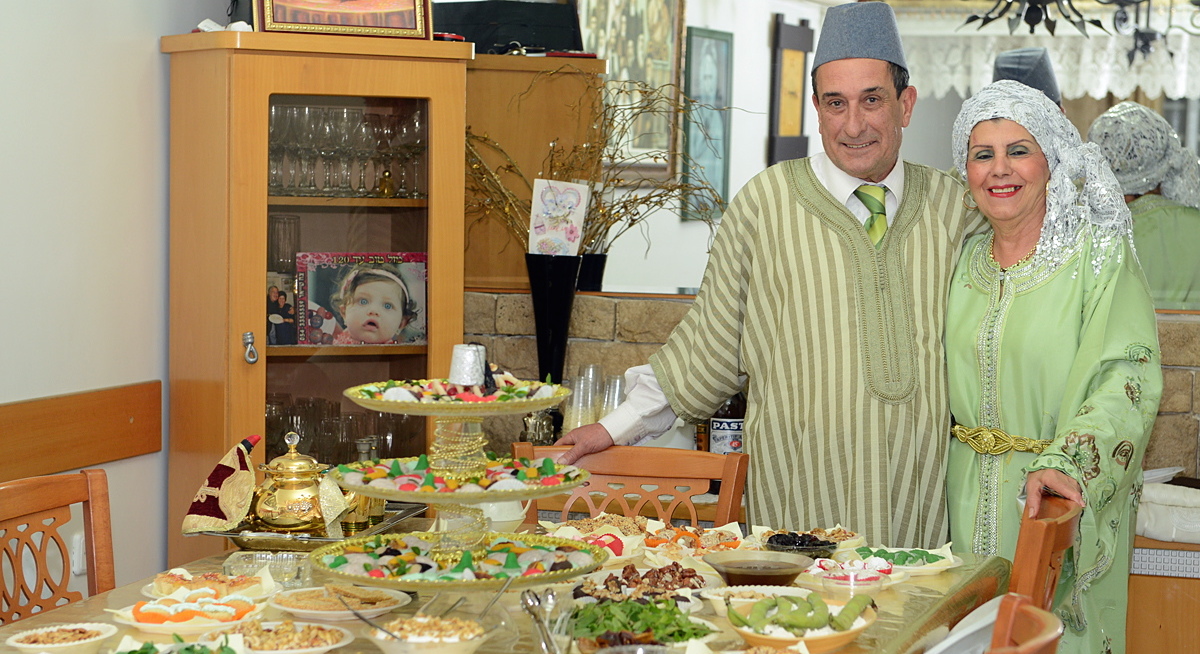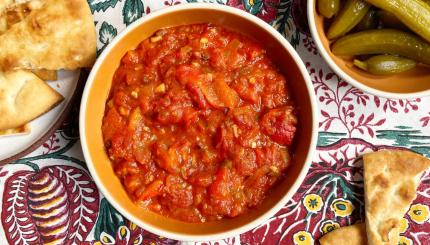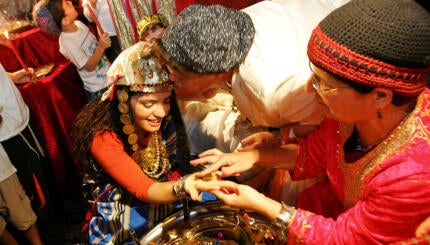Though originating and celebrated widely in the Sephardic community (Jews of Mediterranean background), a small number of North American Ashkenazi Jews (those of Eastern European background) have started celebrating this festival in recent years.
Theories About Its Origins
The Moroccan Jews are known for Mimouna, the exuberant festival held on the evening and day after Passover, and whose origins are unclear. According to one explanation, it is the yahrzeit (anniversary of the death) of Maimon ben Joseph, the father of the great Jewish philosopher Maimonides (Rabbi Moses ben Maimon, also known by his acronym Rambam), a scholar in his own right who lived in Fez (Morocco) and wrote on Jewish-Islamic relations. He died around 1170.
Others say Mimouna is derived from the Arabic word for wealth and good fortune (literally “protected by God,” ma’amoun). Since Passover is the beginning of the new agricultural year, when the world is judged for produce, it is a time to pray for plentiful crops, symbolic of general prosperity.
Still others connect Mimouna with the word emunah (“belief”), claiming it celebrates belief in Israel’s redemption. Along the same lines, there is also support (said to be traced to Maimonides’ explanation) for the word being an Arabic adaptation of the phrase Ani ma’amin (I believe), the classic expression of faith in the coming of the messiah (ana for ani, placed after the verb ma’amin, as is common in Arabic, yielding ma’amin ana, which became maimouna in the local Judeo dialect). It may have been a greeting exchanged to bolster one another’s disappointment that Passover had come and gone without the long-anticipated return to Jerusalem.
With your help, My Jewish Learning can provide endless opportunities for learning, connection and discovery.
Traditional Foods
The Libyans made a challah-like round loaf with a hard-boiled egg secured in the center with strips of dough. Single men and women received blessings that they would be married in the year ahead. Women wore their fanciest clothes, girls donned white, and children dressed in costumes like the Berbers (native North Africans) and Arabs who shared their celebration and provided flowers, milk, butter, honey, wheat, and other produce for the Jews. Dining tables were decorated with flowers, wheat stalks, and sometimes live fish in bowls (this time symbolizing birth and fertility). Golden rings were hidden in a bowl containing flour, suggesting hoped-for wealth or blessings. A dairy meal of buttermilk, sweets, and special pancakes called muflita served with honey was accompanied by singing, dancing, and visiting with friends.
Numerous legends about acts of salvation that occurred on this date arose, and the festival spread through North Africa and to America, where the Mimouna meal provides closure for Passover, and into Israel, where the community gathers in Jerusalem. The holiday traditionally continues the next day with picnics and outings at beaches, fields, and cemeteries.
For the Sabbath after Passover, when the approaching start of the Hebrew month Iyar was announced, challah was sometimes made in the shape of a key. Sprinkled with sesame seeds representing the mahn (manna) that began to fall in Iyar (after the Exodus from Egypt, as related in the Torah), the challah stood for the key to our livelihood, which is in God’s hands.
Excerpted from Celebrate! The Complete Jewish Holiday Handbook. Reprinted with permission of the publisher (Jason Aronson Inc).
Ashkenazi
Pronounced: AHSH-ken-AH-zee, Origin: Hebrew, Jews of Central and Eastern European origin.
challah
Pronounced: KHAH-luh, Origin: Hebrew, ceremonial bread eaten on Shabbat and Jewish holidays.



